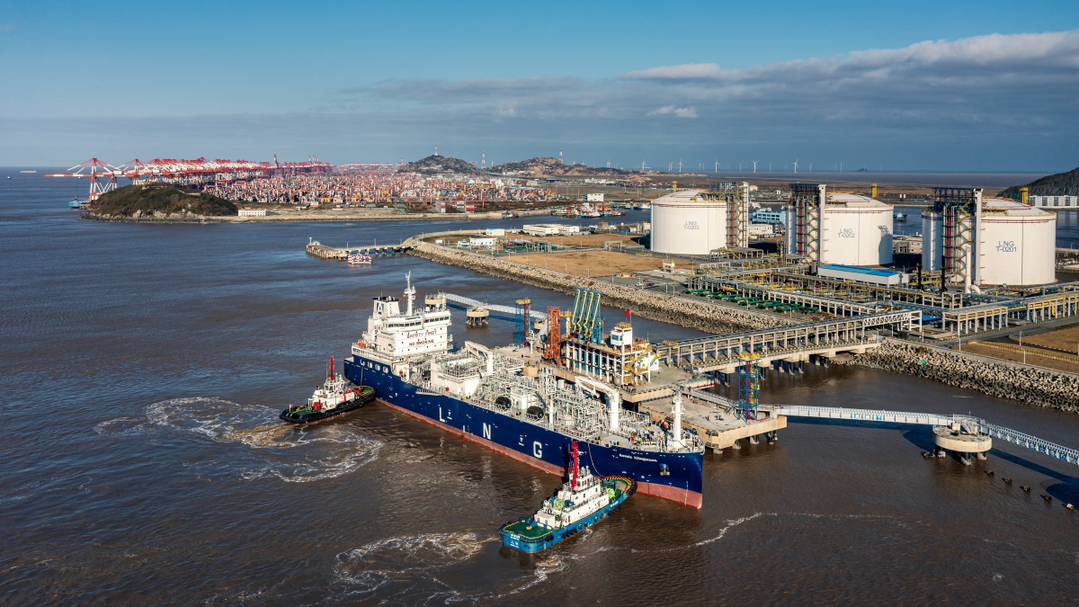
JAKARTA – Indonesia's ambitious $1.5 billion initiative to replace diesel with liquefied natural gas (LNG) in its power sector is poised to reshape regional shipping dynamics, particularly for small-scale LNG carriers. The program, spearheaded by PLN Energi Primer Indonesia (PLN EPI), aims to supply LNG to 41 power plants across the archipelago, necessitating a robust network of vessels capable of navigating remote locations.
The initiative, which had previously faced hurdles due to financing and pricing risks, is now gaining momentum with infrastructure tenders awarded for four LNG clusters. The distribution model relies on a hub-and-spoke system, where larger terminals feed smaller tankers that will supply localized regasification sites.
PLN EPI’s director of fuels and gas, Rakhmad Dewanto, emphasized the commitment to securing domestic LNG for the project, which is expected to boost domestic LNG consumption by approximately 6% by the end of 2026. This surge in demand could potentially strain existing supply commitments, raising concerns about Indonesia becoming a net LNG importer sooner than anticipated.
The geographical complexities of Indonesia necessitate a fleet of smaller, specialized LNG carriers capable of servicing islands and remote facilities that cannot accommodate large vessels. This development presents significant opportunities for shipowners specializing in the Southeast Asian small-scale LNG segment, particularly those experienced in short-haul deliveries.
However, the availability of suitable LNG carriers poses a considerable challenge. Eduardo Perez Orue, Small Scale LNG Shipping director, highlighted the scarcity of these vessels globally, noting that the existing fleet is limited and largely committed to long-term trades.
"The big question here is: who will provide the necessary tonnage?" said Mr. Perez Orue. "Small LNG carriers are few globally. All included, we are probably talking about a global fleet of 120 ships, ranging from a mere 187-m3 in capacity for the Seagas up to 30,000-m3 for the latest Chinese-built vessels, and most of them are already committed into long-term trades."
The scale of Indonesia's plan suggests a need for a diverse fleet of vessel sizes to ensure efficient deliveries. Mr. Perez Orue estimated that supplying 41 terminals would require at least 10 to 20 ships of varying capacities. Terminal storage constraints will also influence vessel size, with smaller terminals requiring smaller vessels to balance costs and inventory risks.
Currently, Indonesia operates only one small-scale LNG carrier, the 23,000-m3 Triputra, which transports LNG from Bontang to Bali. Expanding the fleet will be a complex undertaking, particularly as Indonesia lacks experience in building LNG carriers of any size.
"Building a small fleet of them looks like a challenge," Mr. Perez Orue noted. "Therefore, part of that tonnage would have to be built outside Indonesia, most likely in Korea or China, but in that case, the ships would need a special waiver to be able to pass the strict cabotage laws of the country."
Indonesia's stringent cabotage laws, designed to protect its domestic shipping industry, require vessels operating domestically to be Indonesian-flagged and predominantly locally owned. Securing exemptions for foreign-built vessels will be crucial for PLN EPI.
Operational factors also dictate vessel specifications. "The ships for this trade will have to be seagoing ships, not mere barges with tanks on top," Mr. Perez Orue emphasized, highlighting the need for robust vessels capable of handling varied sea conditions.
Despite logistical and regulatory hurdles, the industry is closely monitoring Indonesia's LNG transition. The program's success hinges on securing LNG supply, building terminals, and assembling a suitable fleet of ships that comply with local laws and can operate effectively in Indonesia's maritime environment.
The growing regional power demand and the push for reduced emissions are expected to drive demand for small-scale LNG carriers across Southeast Asia. The challenge now is ensuring the timely mobilization of the necessary fleet.
[Copyright (c) Global Economic Times. All Rights Reserved.]



























